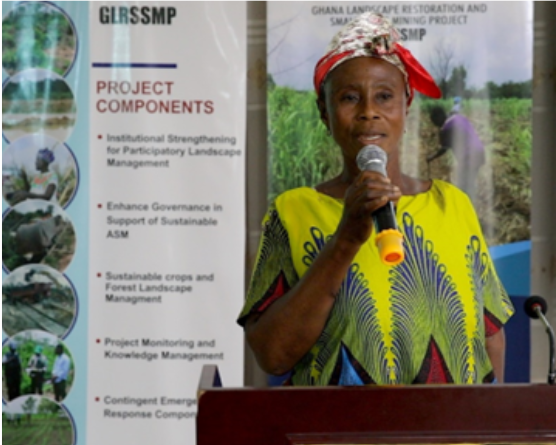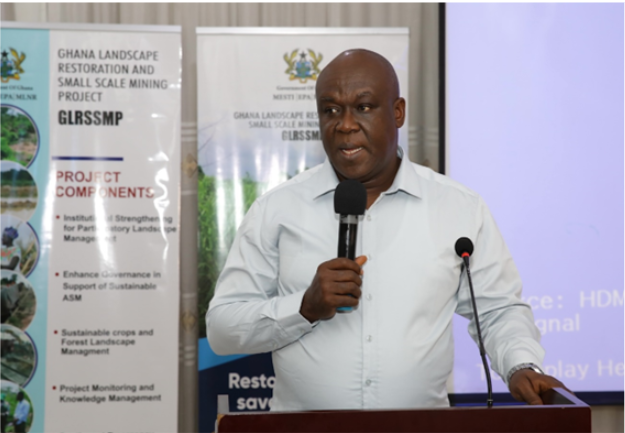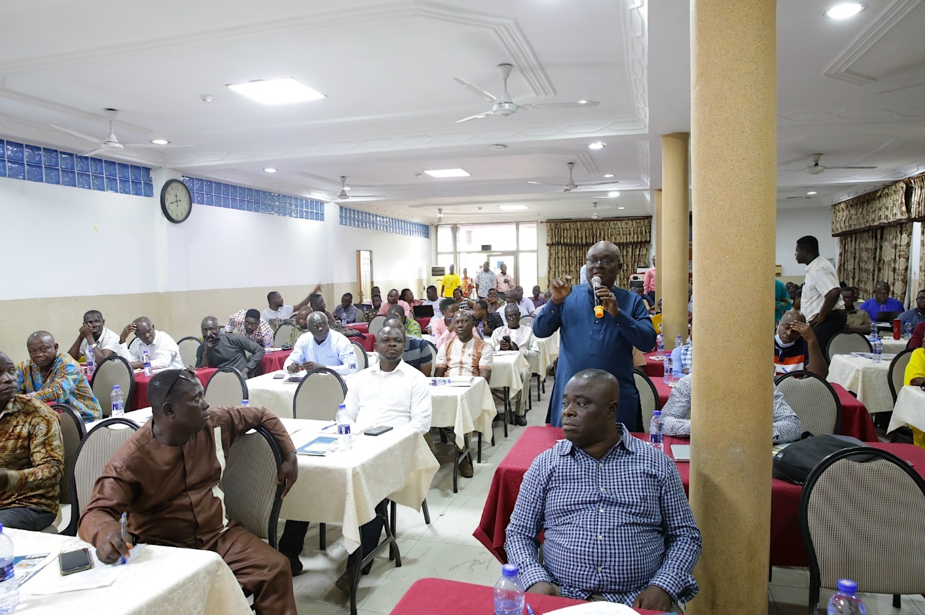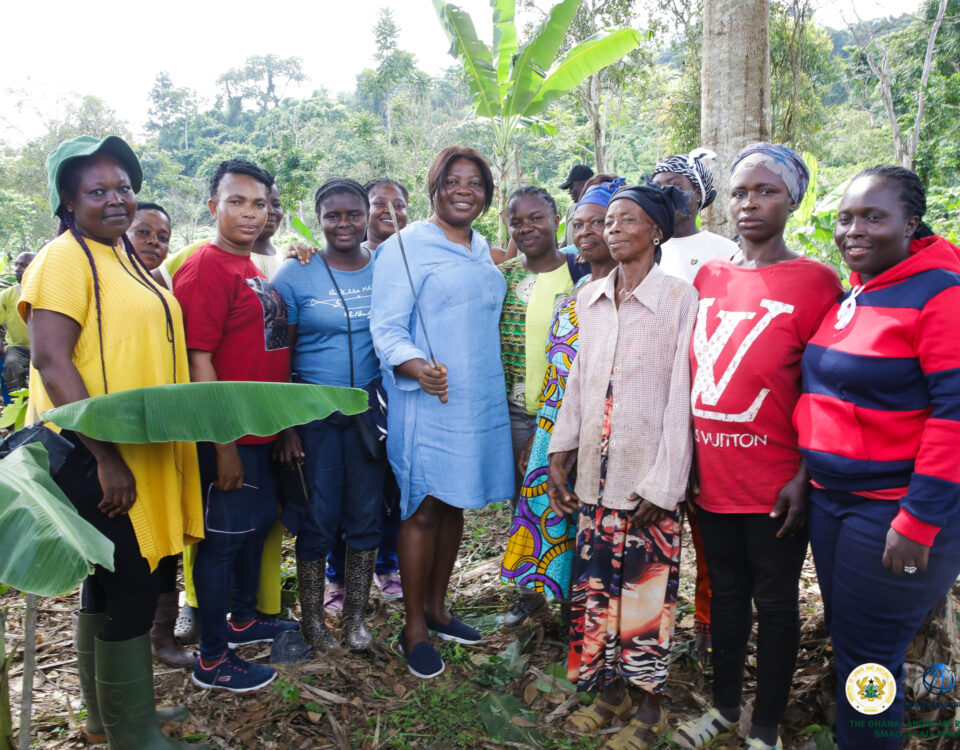
GLRSSMP Holds a Second Regional Learning Workshop with Stakeholders in the Four Northern Regions
November 16, 2023
Riparian Restoration Unveiled: A Drone’s-Eye View
August 1, 2024Ghana Landscape Restoration and Small Scale-Mining Project: Farmers Advised to Adopt to Sustainable Practices

Farmers in the country have been advised to use more sustainable ways of preparing their lands for farming rather than the use of weedicides.
Over the years, farmers have become over-reliant on weedicides for land preparation, this approach requires less labour for weed removal to provide large areas for planting.
Some of these weedicides contain chemicals (glyphosate) that damages soil fertility over time, thereby reducing the nutrient content of farmlands in the country.
At a two-day (November 23-24, 2023) regional stakeholder workshop on the Ghana Landscape Restoration and small scale-Mining Project (GLRSSMP) at the Anita Hotel in Ejisu, the focal person for the Ministry of Food and Agriculture on the project, Mr. Kingsley Kwako Amoako cautioned farmers against the excessive use of weedicides in controlling weeds on their farm lands as it poses serious danger to landscapes and soil nutrients of farm lands and eventually to the health of farmers and consumers of the farm produce.
Project
The GLRSSMP, is a six-year initiative being implemented by the Environmental Protection Agency (EPA) and the Ministry of Lands and Natural Resources (MLNR), with funding support from the World Bank, Global Environment Facility (GEF), the PROGREEN Trust Fund and the Extractives Global Programmatic Support Trust Fund.
The project is aimed at promoting sustainable landscape restoration and responsible small-scale mining practices in selected districts in the Northern and Cocoa Forest Landscape of Ghana.
Its objective is to strengthen integrated landscape management, formalization of artisanal and small-scale mining, and increase benefits to communities in the targeted degraded savannah and cocoa forest areas.
The workshop, the first of its kind to be organised for stakeholders in the Cocoa Forest Landscapes in Ghana (Eastern, Ashanti, Bono East, and Western North regions) forms part of efforts to assess the progress of the GLRSSMP since its inception in 2021.
It brought together representatives of beneficiary institution from the Environmental Protection Agency (EPA), the Ministry of Food and Agriculture, the Forestry Commission (Wildlife Division, Resource Management and Support Centre, and Forestry Services Division) Cocobod and farmers from project beneficiary communities in the region.
According to Yaw Yirenkyi, a farmer from Kwahu South municipality, farmers face the challenge of labor-intensive weeding, leading to the widespread use of weedicide as a convenient solution for clearing extensive land.
However, this practice, he said, has gradually depleted soil nutrients, posing health risks to both farmers and consumers which has led to a decline in the availability of mushrooms and snails, due to the adverse effects of chemical use.
He urged fellow farmers to abandon weedicides and embrace sustainable farming practices (the use of organic weedicides etc.) that the project is enrolling.
Success story
Juliana Nkrumah, a farmer from the Juaben Municipal Assembly explained that she has significantly cut down the use of weedicide on her farm.
Although she previously used weedicides on her maize fields, she said education from the Agricultural Extension Officers has led her to discontinue its use.
Commending the project, she said the impact of the officers through the GLRSSMP, has improved soil quality on her farm and increase her farm produce.
Dr. Jackson Adiyiah Nyantakyi, Asante Regional Director of the EPA, urged farmers to abstain from using weedicides and emphasized the importance of adopting eco-friendly practices.
While acknowledging the initial challenges of transitioning to green methods, he believes that the long-term benefits will be worthwhile.

Mr. Kingsley Kwako Amoako, the focal person for the Ministry of Food and Agriculture on the project in his submission.

Juliana Nkrumah, a beneficiary farmer from the Juaben Municipal Assembly

Dr. Jackson Adiyiah Nyantakyi, the Asante Regional Director of the EPA and Head of the Technical Coordination Office for the Cocoa Forest Landscape, making a significant contribution to the discussion

